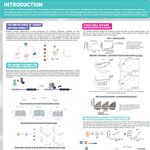R&D Senior Manager, Cell Biology, Thermo Fisher Scientific
BIOGRAPHY

JUN 19, 2019 11:00 AM PDT
Selecting the right tools to build your pluripotent stem cell based disease models
Sponsored by: Thermo Fisher Scientific/Gibco
Speaker
Event Date & Time
DATE: June 19, 2019
TIME: 11:00am PDT, 2:00pm EDT
Abstract
Human induced pluripotent stem cells (hiPSCs) have been globally recognized as a multipurpose research tool for modeling human disease and biology, screening and developing potential therapeutic drugs, and implementing cell and gene therapies. The ability to differentiate human iPSCs into any cell type supports the study of biology and disease in these specified cells in vitro. The emergence of genome editing tools, inlcuding the CRISPR/Cas9 system or TALENs, enable genetic modification of these cells; such as introduction of single base changes or inserting reporters or bio-sensors, which can be used to study the effects of genetic differences or biological functions in the desired cell type. Given the challenges with genome editing efficiency, cell survival and clonal isolation, we have developed a number of reagents and processes to dramatically improve the success rate and timelines for a genome editing experiment in hiPSCs. Key areas of the genome editing workflow that have been addressed include the genome editing tools themselves, the delivery methods and the maintenance of healthy hiPSC cultures during these stressful manipulations. Using the generation of disease models relevant to cardiac and neuronal disease to explore and identify the best workflow for the genome editing process in hiPSC, we built a reliable approach that reproducibly supports the generation of hiPSC lines carrying small mutations such as SNPs or small deletions. Subsequent studies of the disease relevant cell types then identified cellular phenotypes that corroborated with those previously identified in patient-derived hiPSC-based models. In summary, we detail advances with tools, reagents and protocols that facilitate the genome editing workflow in hiPSC and demonstrate that the use of such tools can be readily implemented to generate hiPSC-derived disease models and reporter lines.
Learning Objectives:
- Selecting the right tools are key for successful genome editing in PSC
- Successful clonal isolation of PSC heavily depends on medium choice.
Webinars will be available for unlimited on-demand viewing after live event.
LabRoots is approved as a provider of continuing education programs in the clinical laboratory sciences by the ASCLS P.A.C.E. ® Program. By attending this webinar, you can earn 1 Continuing Education credit once you have viewed the webinar in its entirety.
You May Also Like
OCT 02, 2024 | 7:30 AM
De novo gene synthesis and protein expression are established technologies that can give access to nearly any target DNA or protein sequence, allowing for engineering of biologics. In this p...
Speaker:
Claudia Chiocchini
Presented at: Cancer Research & Oncology Virtual Event Series 2024
Sponsored By: Thermo Fisher Scientific
Sponsored By: Thermo Fisher Scientific
DEC 10, 2024 | 9:00 AM
To-date, proteomic analysis has been severely limited in scale and resolution. Analyzing protein samples using an intact, single-molecule approach holds th...
APR 21, 2025 | 1:00 PM
C.E. CREDITS
Routine coagulation assays are widely performed in laboratories and provide valuable information to the patient’s overall clinical picture. It’s important for laboratorians to kn...
Speaker:
Malissa S Norfolk, MBA, PMP, MLS(ASCP)ᶜᵐSHᶜᵐ
FEB 25, 2025 | 1:00 PM
C.E. CREDITS
Quality efforts in the clinical laboratory are always under the microscope- a hyper-focus for laboratorians from start to finish. Recognizing the external factors that affect hemostasis test...
Speaker:
Rae Kerlin, BS, MLS (ASCP), NCA
MAR 19, 2025 | 11:30 AM
Join this year's poster presenters in the Poster Hall during the Poster Networking Hour, Wednesday, March 5th, from 10:00 –11:00 AM PDT , to chat...
JUN 19, 2019 11:00 AM PDT
Share
Selecting the right tools to build your pluripotent stem cell based disease models
Sponsored by: Thermo Fisher Scientific/Gibco
Loading Comments...
Please update your information
Certificate of Attendance
Thank you for choosing Labroots. Please note that a Certificate of Attendance does NOT count towards Continuing Education Credits.
DOWNLOAD CERTIFICATE
DOWNLOAD CERTIFICATE
You must watch the entire webinar to receive your certificate of attendance.
You must attend the event before receiving your certificate of attendance.
You must register for the event first.
Certificate is no longer available for this event.
You must be logged in to retrieve your certificate.





